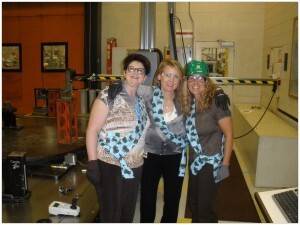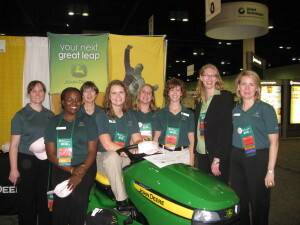Guest blog post by Sally Hollis of Lanehaven Farms
Twenty-five years ago I received excellent advice as a high school student, exploring potential careers! “If you like science and math, you should consider a career in engineering.” I didn’t know anything about engineering and I didn’t even know an engineer. Because I was intrigued, I attended a summer engineering camp at Iowa State University (ISU) that ultimately inspired me to study engineering.

STEM EDUCATION
An interest in science, math and engineering is now commonly referred to as STEM: Science, Technology, Engineering and Math. STEM education is a hot topic because STEM careers are globally in high demand. “In the 21st century, scientific and technological innovations have become increasingly important as we face the benefits and challenges of both globalization and a knowledge-based economy. To succeed in this new information-based and highly technological society, students need to develop their capabilities in STEM to levels much beyond what was considered acceptable in the past,” according to the National Science Foundation.
I believe a focus on STEM education is beneficial for any career as we look to the future. It helps create individuals who can think creatively, solve problems, and innovate for the ever changing demands each career will face in the future.
AGRICULTURAL CAREERS
Today, I have some excellent advice for those exploring potential careers: “If you like science and math, you should consider a STEM career in the field of agriculture!” While I knew nothing about engineering 25 years ago, I did know a little about agriculture. I grew up in a rural area where my grandfather farmed. Nobody advised me to consider a career in agriculture, but I am pretty sure I would have dismissed it at the time. I am lucky now to have experienced both STEM and agriculture! I graduated from ISU with a degree in mechanical engineering, married a farmer, worked for John Deere for 15 years and now work on our family farm full time.
I believe a career in agriculture is something all students should consider, especially Midwesterners! The Midwest IS the Silicon Valley for agriculture. Those of us fortunate enough to call it home live on top of some of the best farmland globally where outstanding crops and livestock are raised to help feed the world. Our youth have a unique opportunity to learn about agriculture firsthand as they prepare to save the world. Yes, I did say save the world.

The STEM Food & Ag Council published its first annual report last October. It includes excellent information on the global challenge ahead of us, and the many opportunities for millennials in agriculture. The report quotes Dr. David Acker, associate dean in the ISU College of Agriculture and Life Sciences (CALS). In the article he states agriculture means offering solutions to the world’s toughest problems, like mitigating the effects of climate change and providing enough food to sustain a population quickly approaching nine billion.
And as the field of agriculture takes on a new focus, it also comes with a brand-new slogan: Save the world. Dr. Acker goes on to say more and more young people are studying agriculture at ISU because they realize what a pivotal role agriculture will play in the future of human existence.
SPREAD THE WORD
Last weekend I attended a TEDx event at the University of Northern Iowa. The theme “Charting Destiny” was intended to launch conversations and inspire positive growth for individuals, institutions, and for our culture. Encouraging youth to explore STEM careers in the field of agriculture is an idea worth spreading. Please help spread the word and inspire someone’s destiny!
